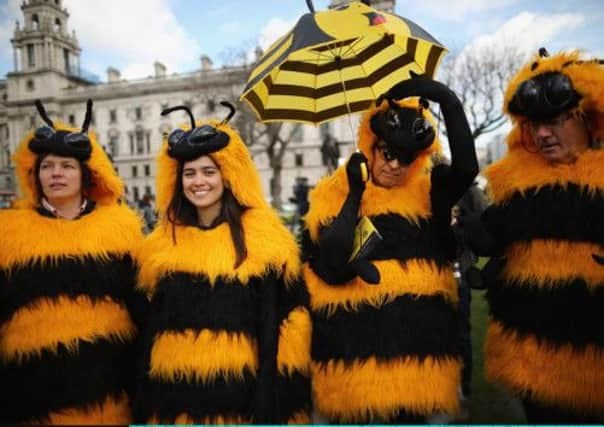Comment: Insecticides ban is positive news for bees


The European Commission and many European governments have reacted responsibly to the British and European scientific evidence showing clearly that a suspension is justified, despite the UK government opposing the ban.
There is a huge weight of peer-reviewed, scientific evidence that links the impact of neonicotinoid pesticides to bees.
Advertisement
Hide AdAdvertisement
Hide AdScientists have found that even a really low dosage of these chemicals can disrupt bee behaviour in a way that is likely to contribute not only to bee decline, but to the decline in other pollinators from the honey bee to the butterfly.
This research used far below the level of neonicotinoids that European governments consider a “safe” level of toxic chemical.
In Italy, the government banned three neonicotinoid pesticides and, as a result, the winter deaths of honey bees fell by more than 50 per cent in three years, suggesting that a neonicotinoid ban will be effective in helping to save our bees.
Bee health is a complicated issue which is also affected by with weather and diseases.
But restricting insecticides known to impact bee survival is the very least we can do for the bees, on which we depend for pollination of up to one third of our food. So this precautionary approach is extremely sensible.
We know we can farm successfully without neonicotinoids.
Organic farming shows us that systemic insecticides are unnecessary for producing food.
A recent metastudy of 39 studies on 23 crops around the world published earlier this year in the journal Ecology Letters confirms that wild bees are more abundant in diversified systems such as organic farms.
We need to ensure continued governmental support for organic farming, and if you want to do your bit to help the bees, as well as choosing organic food, you can plant wild flowers to help them feed and practice bee-friendly gardening.
• Laura Stewart is director of Soil Association Scotland.